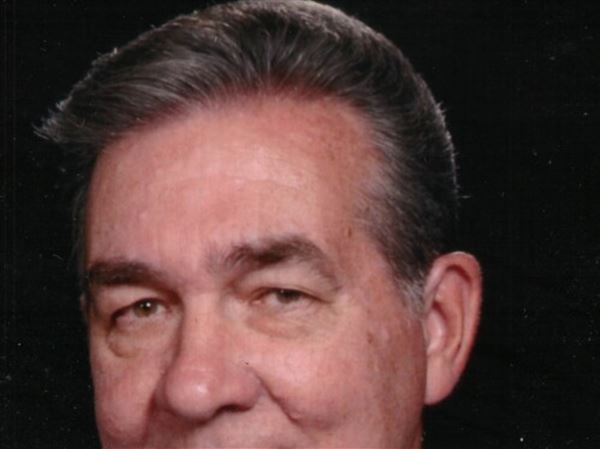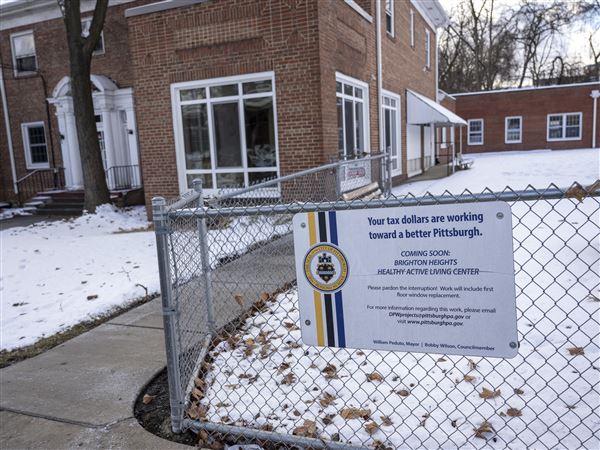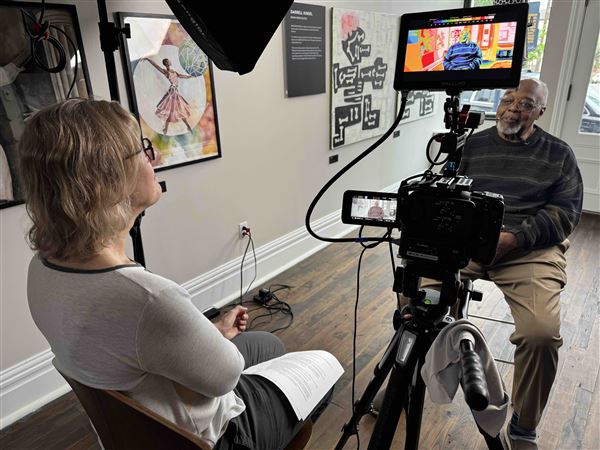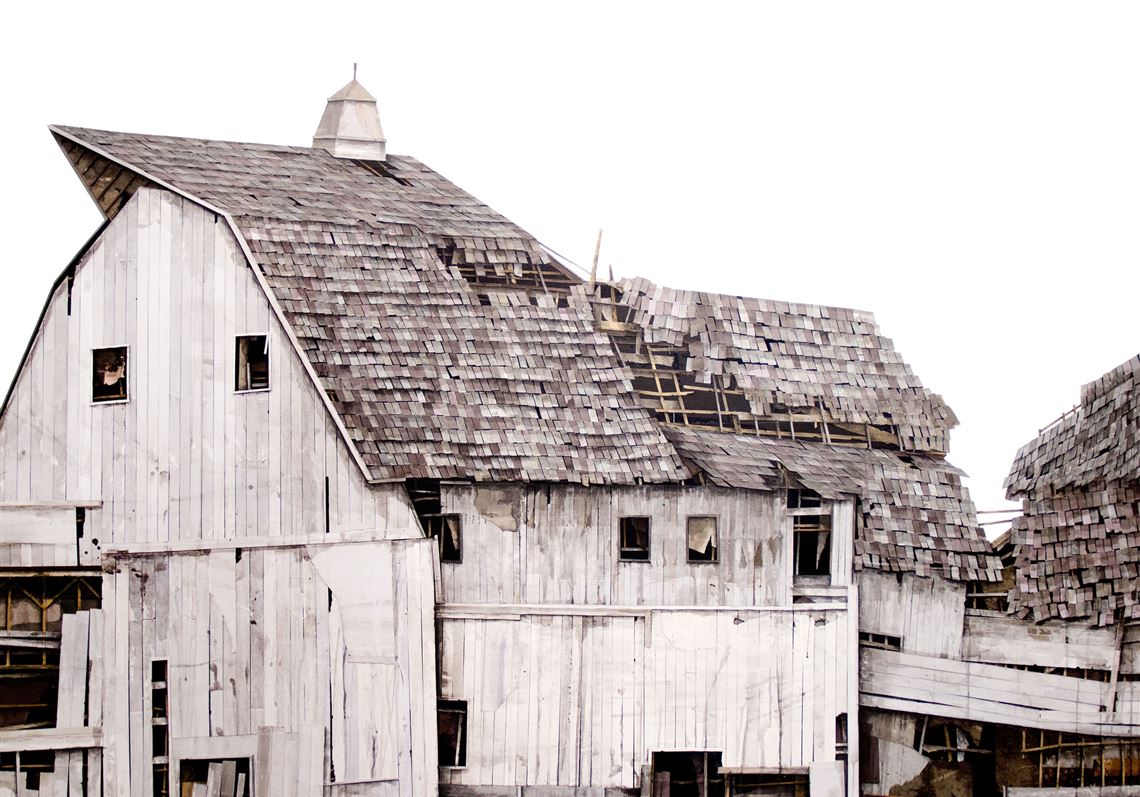“Dissolution,” an exhibition at the Pittsburgh Glass Center, is a collaborative effort by two artists that excels through the successful integration of new approaches to materials and design with different but complementary philosophical investigations each has conducted during his career.
Seth Clark and Jason Forck, two of Pittsburgh’s most accomplished young artists, have backgrounds as disparate as their media.
Mr. Clark, known primarily for his drawings and paintings, is a Massachusetts native who earned a degree in graphic design at the Rhode Island School of Design. Mr. Forck, a glass artist, grew up on a small Kansas farm and earned a degree from Emporia State University, where he concentrated on glass and painting. He is the center’s education and creative projects coordinator.
What unites them in this exhibition is a shared interest in architectural forms and their impact upon the land. They focus on rural architecture such as barns and churches, but they raise subliminal issues that may be extrapolated across cultural enclaves and even to mortality itself.
Included as almost prelude to the exhibition are three exquisite large mixed media images of weathering barns by Mr. Clark. While the immediate impression is of a realistic representation, the artist infuses tension into such works via disruptions or off-kilter alignment.
They set the context for less familiar, abstracted sculptures and wall panels that range from referential to conceptual. A several-foot-long “Glass Spire” calls to mind the small churches that, like barns, once dotted the rural countryside. Four works with the word “Dissolution” in their titles are the ultimate endgame of the artists’ processes. To make them, thin glass bubbles were blown, broken into shards, arranged on a flat surface and fired to fuse them into solid surfaces that have a painterly look.
“The looseness and the abstractness of those are a pretty large departure for both of us,” Mr. Forck said. But variants on the underlying theme are not.
“Coming from a rural farm background, I remember seeing the decay. ... But there is also beauty in these old structures which are still beautiful as they collapse.”
His “Tin Roof Studies” celebrate that perception. Mr. Forck altered two pieces of tin roof from the family farm, packed them with frit (materials that fuse into glass), and fired them to achieve a coating that resembles crusty snow. He then opened up parts of that surface to “create an interplay between the two materials.”
Mr. Forck’s elegant “Obscure Landscape Series” is meditatively minimal. One or more pairs of small kiln-formed glass shards mounted on white wooden panels suggest remnants of the built or geological landscape shrouded in a mist that gently and imperceptibly moves them from the extant moment into memory or imagination.
Mr. Clark, who comes more from an architectural standpoint, usually focuses on urban subjects. But both artists have used barns as subject in the past. The focus for the show became the landscape of Americana.
“Manmade architectural structures are constantly decomposing,” he said. “There’s a preservation aspect, there’s a beauty to it as they collapse and decay, but there’s a sadness.”
The artists worked together on the larger works, modifying glass canes to create “2 by 4s” for the interior structure of a faux exhibition title wall or the structural elements of pieces such as “Glass Spire.” For “Bound,” they attached weathered wooded timbers found near Mr. Clark’s studio onto an armature, then rotated the piece as Mr. Forck threaded hundreds of turns of clear hot glass around the timbers.
Mr. Forck likes the exhibition’s accessibility. “People come into the gallery and say, ‘This reminds me of when I drive to my grandparents’ house’ or ‘of a road trip when I drove through small towns.’ ”
“Dissolution” continues through Jan. 16 at 5472 Penn Ave., Friendship. Hours are 10 a.m.-7 p.m. Monday through Thursday, 10 a.m.-4 p.m. Friday through Sunday. Closed Dec. 23-Jan. 3. Admission is free. Information: 412-365-2145 or www.pittsburghglasscenter.org.
M. Thomas: mthomas@post-gazette.com or 412-263-1925.
First Published: November 30, 2016, 5:00 a.m.


















